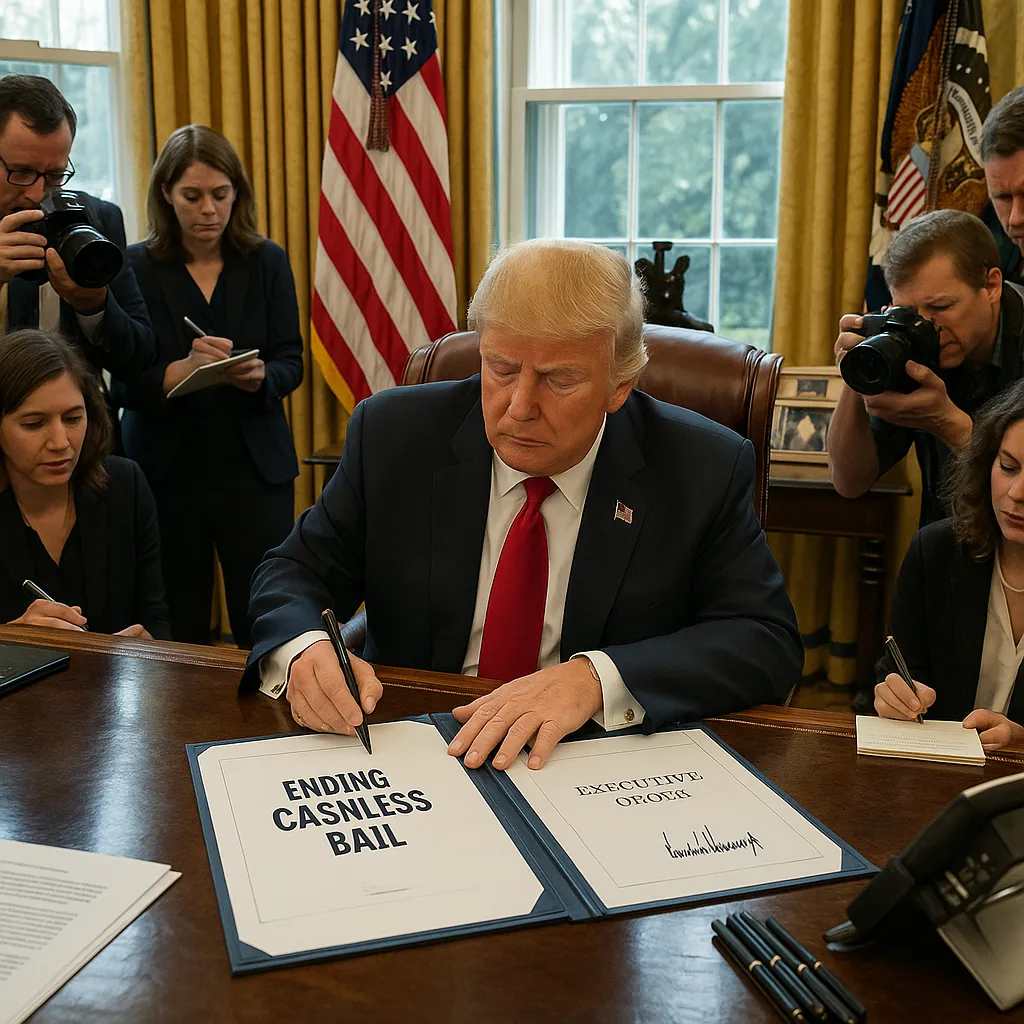Trump Moves to End Cashless Bail with Executive Orders

WASHINGTON, Aug. 26, 2025 - President Donald Trump has launched a federal campaign to eliminate cashless bail, signing two executive orders aimed at rolling back pretrial release policies that allow defendants to await trial without posting monetary bail.
In the Oval Office on Monday, Trump declared, “We’re ending cashless bail,” and threatened to withhold or revoke federal funding from jurisdictions that have “substantially eliminated cash bail” for offenses deemed dangerous to public safety. One order specifically targets Washington, D.C., where the president has declared a “crime emergency” and asserted federal authority to keep more arrestees in custody. The other directs Attorney General Pam Bondi to compile a list of states and localities that use cashless bail and recommend which federal grants and contracts should be suspended or terminated.
Cashless bail policies permit judges to release defendants pretrial based on risk assessments-such as the severity of charges or the likelihood of appearing in court-instead of requiring a cash deposit. Advocates argue the system reduces inequality by preventing low-income individuals from languishing in jail solely because they cannot afford bail. Critics, including the administration, contend that removing monetary stakes undermines court compliance and endangers communities.
The administration’s actions follow a 2023 SAFE-T Act in Illinois, which abolished cash bail statewide, and similar reforms in New Jersey, New Mexico and other jurisdictions. Trump derided these measures as contributing to criminal activity, insisting that “a person commits murder, they get arrested, and then it’s, ‘Don’t worry, no cash required…you vanish’”.
Civil rights groups swiftly condemned the orders. The American Civil Liberties Union argued that the administration’s threats would disproportionately harm low-income communities and bolster the private bail bond industry while doing little to improve public safety.
Federal agencies now have 30 days to identify cashless bail jurisdictions and recommend funding actions. Bondi’s forthcoming list could reshape relationships between the federal government and cities and states led by reform-minded leaders. As the 2025 presidential campaign unfolds, the debate over cashless bail has emerged as a high-stakes flashpoint in the national discussion on crime and justice.
Categories
Beauty and fashion Business and finance Climate Entertainment Food and drink Games Health Hobbies and leisure Jobs and education Law and government Other Politics Science Shopping Sports Technology Travel and transportationRecent Posts
Tags